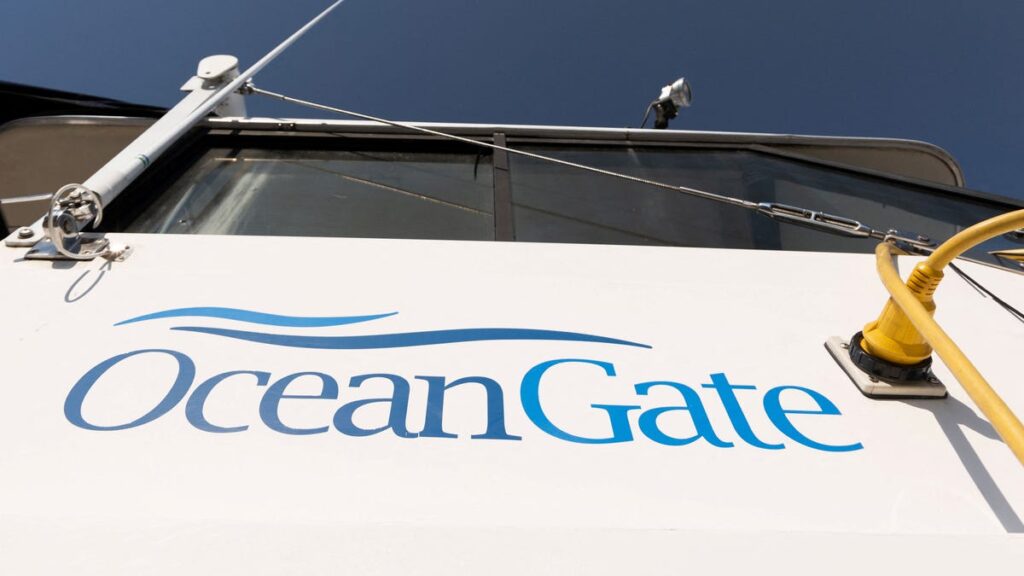In June 2023, the world was left horrified by the implosion of OceanGate’s Titan submersible, which resulted in the tragic loss of five lives. As investigations continue, newly released footage and documentaries are set to uncover more details surrounding the unfortunate incident.
The Fateful Voyage of Titan
The Titan submersible was undertaking a highly anticipated journey to explore the wreck of the Titanic, lying approximately 3,800 meters below the surface of the North Atlantic. On June 18, 2023, the submersible set off with five individuals on board: Stockton Rush, the CEO of OceanGate; the British billionaire Hamish Harding; French maritime expert Paul-Henri Nargeolet; and Pakistani businessman Shahzada Dawood along with his 19-year-old son, Suleman Dawood.
About 90 minutes into their descent, disaster struck. The Titan imploded, resulting in the immediate deaths of all passengers. Footage released by the US Coast Guard shows Wendy Rush, Stockton’s wife, hearing an alarming sound during the dive and asking, “What was that bang?” This chilling question captures the gravity of the moment just before tragedy unfolded.
New Evidence from the US Coast Guard Investigation
The US Coast Guard’s ongoing investigation has revealed critical insights into the events leading up to the implosion. The investigation captured not only the sound of the sub’s catastrophic failure but also the context in which it occurred. The vessel had previously reported a loud bang during a dive in 2022, which the crew thought was the sub shifting within its frame. However, experts now believe this was an early indicator of structural failure known as delamination.
Carbon fiber, used in Titan’s design, exhibited significant weaknesses under high pressure—a fact that troubled industry experts even before the dive took place. The US Coast Guard has established that delamination likely initiated during Dive 80, leading to a more significant risk with each subsequent voyage.
Documentaries Exploring the Disaster
In light of recent developments, two documentaries are set to hit platforms soon: a BBC production titled “Implosion: The Titanic Sub Disaster” and Netflix’s “Titan: The OceanGate Disaster.” These films aim to provide deeper insights into the challenges faced by OceanGate and the ambitious vision held by Stockton Rush.
According to the Netflix synopsis, the documentary evaluates Rush’s quest for innovation, his obsession with deep-sea adventures, and the consequences of prioritizing ambition over safety. Both documentaries utilize unprecedented access to the investigation data and testimonies from those close to the tragedy.
The Role of the US Coast Guard
The US Coast Guard is expected to release a final report summarizing their findings from the investigation, which they hope will uncover the systemic failures that led to the tragic incident. This investigation’s findings will likely prompt regulatory changes in the industry.
Public Reaction and Legal Ramifications
The Titan implosion incident sparked widespread outrage concerning the safety practices at OceanGate. Concerns were compounded by testimonies from previous passengers and industry experts who voiced warnings about the vessel’s integrity. As a result, lawsuits have already begun to emerge against OceanGate, with potential for criminal prosecutions as the public demands accountability.
Christine Dawood, who lost her husband and son in the disaster, articulated the long-lasting emotional impact on families, claiming, “Nobody who goes through such a trauma can ever be the same.” Her statement poignantly highlights the human cost behind the tragedy.
Conclusion: A Cautionary Tale
The loss of the Titan serves as a critical reminder of the inherent dangers that come with deep-sea exploration, particularly when ambition overshadows caution. The ripples from this tragedy will be felt for years, not only as a painful reminder for the families involved but also as a cautionary tale for the maritime industry as a whole. With documentaries set to explore the incident’s darker aspects, the world awaits clarity on what went wrong, hoping for stronger regulations to prevent such disasters in the future.

